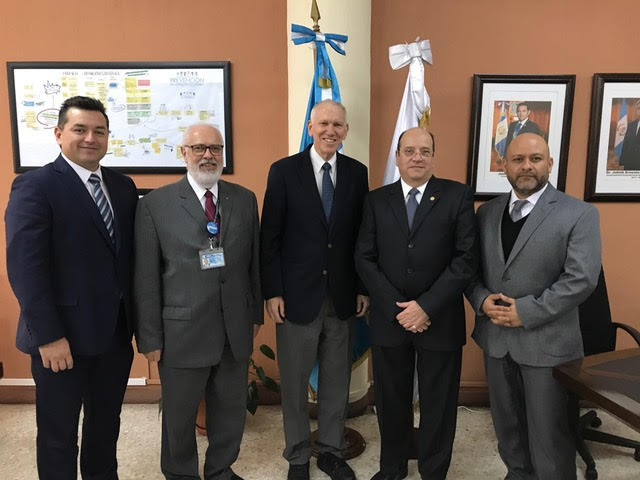
Search
Posts con la etiqueta ‘MPI’
Dominican Republic becomes first country in the Caribbean to launch a MPI
Functions of the IPM-RD
The Dominican Republic is also part of the Global MPI that is calculated every year by OPHI. The Global MPI makes it possible to compare multidimensional poverty across countries. The Dominican Republic is part as well of the IPM-Latin America developed by the Economic Commission for Latin America and the Caribbean (ECLAC), with OPH that allows the Dominican Republic to measure its performance along side that of its neighbors. But now the country will have its own National IPM-RD, to analyze the situation in which Dominicans live and to develop more efficient and effective public policies.
The index measures five critical dimensions at the individual level that reveal not only how many people are multidimensionally poor, but also the composition and intensity of their poverty, considering that poverty is not just lack of money. The MPI-DR directly calculates deprivations in Health, Education and Child Care, Livelihood and Labor; Housing and Environment; Digital Gap and Social Relationships. Public primary services such as water, electricity and sanitation are also measured by this innovative index.
Measuring poverty from a multidimensional perspective will make monitoring much easier for authorities which will allow better identification of vulnerable groups and permit better targeting for public policy and interventions.
Panama and the Dominican Republic presented their National MPIs
The Government of the Dominican Republic launched its MPI on the 27th of June in an official ceremony led by the Vice President of the country, Margarita Cedeño Fernández and attended by a number of Government Ministers and Sabina Alkire, Director of OPHI. The Dominican Republic MPI also has 5 dimensions, but with 24 indicators. Among them are the digital divide, discrimination and participation—all highly innovative. The data comes from a new instrument, the MPI Questionnaire, designed specifically to capture the different dimensions that had been identified through a participatory process.
Both measures help to identify the multiple dimensions of poverty that batter peoples lives at the same time. Their individual measures give each government information that can be used for more effective and efficient social policy and allow better governance of poverty resources.
Guatemala will develop a National Multidimensional Poverty Index
The Minister of Social Development, José Moreno, invited Dr. John Hammock, co-founder of OPHI, to come to Guatemala to discuss a possible national MPI with the Government and various stakeholders that would be important in the development of a National MPI in Guatemala.
Dr. Hammock spoke to the leadership and also the technical staff of MIDES (the Ministry of Social Development). He singled out the importance of the trip of Vice Minister Demetreo Morán Herrera to the MPPN meeting in Acapulco late last year. Dr. Hammock also spoke to leaders of NGOs and key think tanks.
Also important were meetings with the Organization of American States, the UNDP and the European Union, all who expressed interest in supporting the program in different ways. In a meeting with the Minister and Vice Ministers of MIDES with Dr Hammock, the Vice President of Guatemala, Dr. Jafeth Cabrera Franco, expressed the strong interest in a national MPI at the highest levels of the Government. As coordinator of the Social Cabinet of the country, he looked forward to presenting the National MPI to that Cabinet. He indicated that MIDES will lead the process but the full Government is behind the effort to build a National Guatemala MPI.

Left to right: Carlos René Vidal López, Vice Minister of Social Protection; José Mauricio Rodriguez Vice Minister of Administration and Finance; John Hammock; Jose Moreno Minister of Social Development and Demetreo Morán Herrera Vice Minister of Social Policy, Planning and Evaluation.













Recent Comments